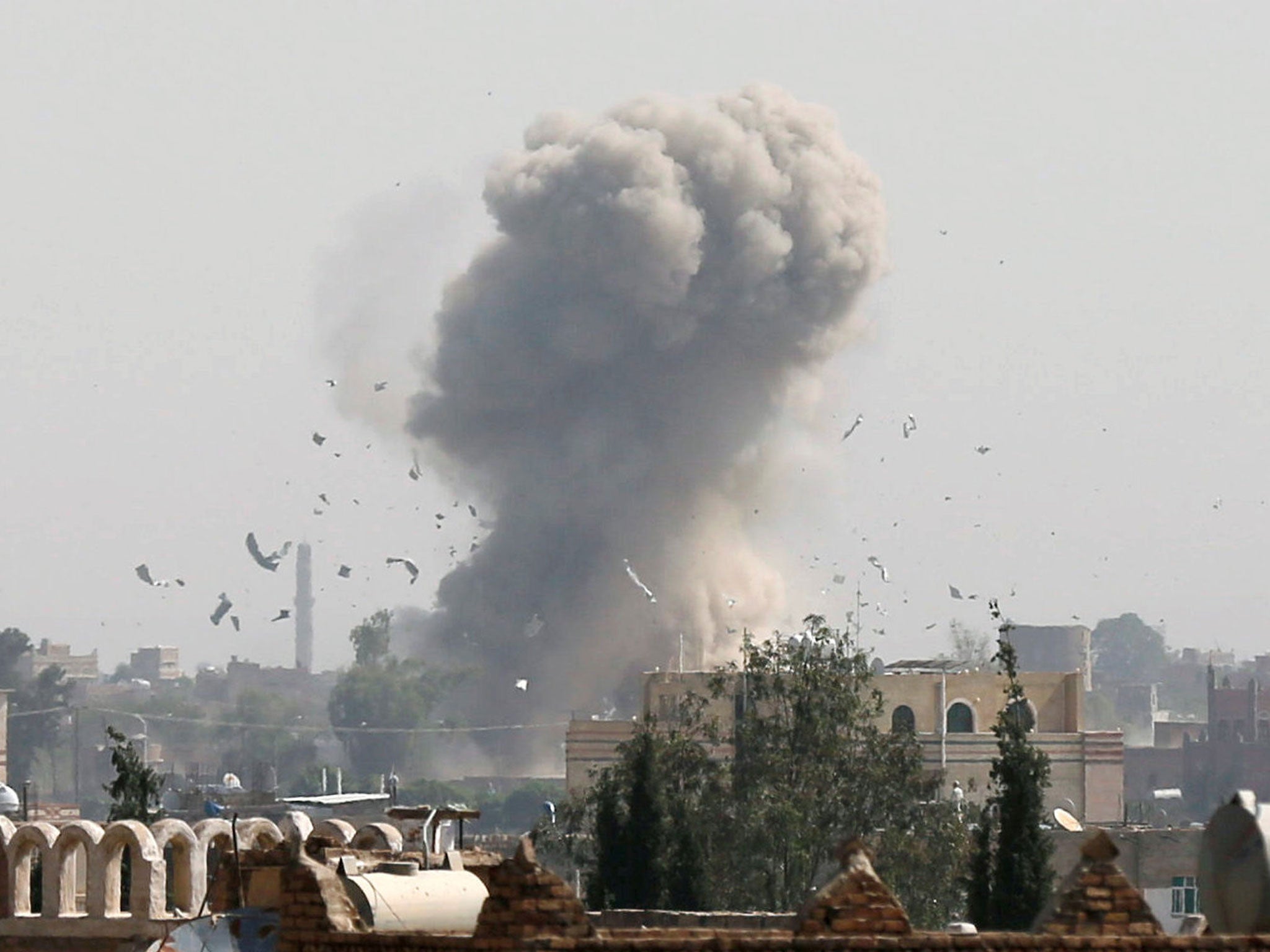Britain is now the second biggest arms dealer in the world
Exclusive: Two-thirds of UK weapons have been sold to Middle Eastern countries since 2010

Your support helps us to tell the story
From reproductive rights to climate change to Big Tech, The Independent is on the ground when the story is developing. Whether it's investigating the financials of Elon Musk's pro-Trump PAC or producing our latest documentary, 'The A Word', which shines a light on the American women fighting for reproductive rights, we know how important it is to parse out the facts from the messaging.
At such a critical moment in US history, we need reporters on the ground. Your donation allows us to keep sending journalists to speak to both sides of the story.
The Independent is trusted by Americans across the entire political spectrum. And unlike many other quality news outlets, we choose not to lock Americans out of our reporting and analysis with paywalls. We believe quality journalism should be available to everyone, paid for by those who can afford it.
Your support makes all the difference.Britain is now the second biggest arms dealer in the world, official government figures show – with most of the weapons fuelling deadly conflicts in the Middle East.
Since 2010 Britain has also sold arms to 39 of the 51 countries ranked “not free” on the Freedom House "Freedom in the world" report, and 22 of the 30 countries on the UK Government’s own human rights watch list.
A full two-thirds of UK weapons over this period were sold to Middle Eastern countries, where instability has fed into increased risk of terror threats to Britain and across the West.
Meanwhile statistics collated by UK Trade and Investment, a government body that promotes British exports abroad, show the UK has sold more arms than Russia, China, or France on average over the last 10 years. Only the United States is a bigger exporter.
“The UK is one of the world’s most successful defence exporters, averaging second place in the global rankings on a rolling ten-year basis, making it Europe’s leading defence exporter in the period,” the body boasted in a report released this summer.
Ministers, who must sign-off all arms export licences, say the current system is robust and that they have revoked permission to export defence equipment in the past – for example in Russia and Ukraine.
But the Government has also ignored calls to stop selling weapons to repressive regimes, including Saudi Arabia, which has been accused by UN bodies of potentially committing war crimes in its military operation in Yemen against Houthi rebels.
Both the European Parliament and the House of Commons International Development Committee have called for exports to the autocracy to stop, but the Government says it has not seen evidence of Saudi war crimes.
The Saudi-led coalition has bombed multiple international hospitals run by the charity Médecins Sans Frontières, as well as schools and wedding parties. Food factories have also been hit, as Yemen faces severe food shortages. Human rights groups say there is evidence civilian targets are being deliberately hit. The coalition has opened investigations into a number of incidents and has repeatedly claimed in statements that the coalition "is committed to full respect for international humanitarian law in the conduct of our operations in Yemen".
A joint analysis conducted by the Independent and Campaign Against the Arms Trade found £10bn in arms licences were issued 2010-2015 to regimes designated “unfree” by Freedom House, including China, Oman, Turkmenistan and UAE.
Meanwhile £7.9bn worth of arms were sold to countries on the “human rights priority countries” list, which is maintained by the Foreign Office and includes countries judged by the FCO to have “the worst, or greatest number of, human rights violations”.
Customers on this list included Saudi Arabia, which was sold bombs, missiles, and fighter jets, Israel, which was sold drone components and targeting equipment, and Bahrain, which was sold machine guns.
Assault rifles and pistols were sent to the Maldives, while Turkmenistan was sold guns and ammunition.
Andrew Smith of Campaign Against Arms Trade warned that the dependence of British exporters on unsavory regimes could make the UK less likely to intervene against human rights violators.
“These terrible figures expose the hypocrisy at the heart of UK foreign policy. The government is always telling us that it acts to promote human rights and democracy, but it is arming and supporting some of the most repressive regimes in the world. The impact of UK arms sales is clear in Yemen, where British fighter jets and bombs have been central to the Saudi-led destruction,” he told The Independent.
“These regimes aren't just buying weapons, they're also buying political support and legitimacy. How likely is the UK to act against human rights violations in these countries when it is also profiting from them?
“There is no such thing as arms control in a war zone and there is no way of knowing how these weapons will be used. The fact that so many weapons were sold to Russia and Libya is a reminder that the shelf-life of weapons is often longer than the governments and situations they were sold to.”
A Government spokesperson said its approach to arms export control was “sufficiently tough”.
“The Government takes its arms export control responsibilities very seriously and operates one of the most robust regimes in the world. We rigorously examine every brokering application on a pre-licensing case-by-case basis against the Consolidated EU and National Arms Export Licensing Criteria.
“Export licensing requires us to consider how the equipment will be used by the end-user and risks around human rights abuses are a key part of our assessment. We consider this approach to be sufficiently tough but where there is evidence of a need for further action we have the powers to do so under existing legislation”.
Join our commenting forum
Join thought-provoking conversations, follow other Independent readers and see their replies
Comments